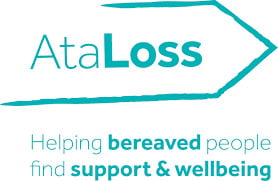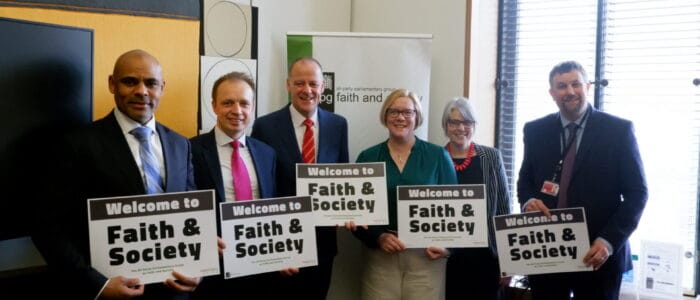AtaLoss – Supporting people through bereavement

 On this week’s blog, we’re excited to have a guest blog from Yvonne Tulloch, Founder and CEO of AtaLoss, talking about the important work they do supporting people through bereavement, and offering churches and other organisations signposting to support available.
On this week’s blog, we’re excited to have a guest blog from Yvonne Tulloch, Founder and CEO of AtaLoss, talking about the important work they do supporting people through bereavement, and offering churches and other organisations signposting to support available.
Not long-ago mental ill-health was stigmatised, but it has become a hot topic. Closely related is bereavement, remaining the ‘elephant in the room’. Bereavement affects everyone sooner or later, yet our British tendency to push death away is kicking in, even in the wake of a pandemic, and the contribution that death is making to our mental ill-health crisis, plus a large number of other issues in society, is being overlooked.
Bereavement is one of the most stressful occurrences of life, with every area potentially impacted. However, decades of ‘death denial’ have led to lost understanding of the grief journey and no system for finding support. Bereaved people find themselves in alien territory, not realising their own responses and with reactions from others making matters worse. Many must navigate mountains of administration or changed personal circumstances, amidst a rollercoaster of emotions, and in an environment that hardly recognises the need to grieve, let alone the length of time it can take. Most people will grieve healthily if timely, community support is found, but counsellors are usually the only support on offer and must be waited for, are expensive or oversubscribed. It’s little wonder many bereaved people become depressed, or their pain is pushed down.
Lost understanding means many bereaved people think they have a mental health issue when they’re experiencing grief reactions. Memory loss, inability to concentrate, confusion, dreams, psychosis and fears are all a natural response. With support, symptoms will usually wane over time but if grief is prolonged or complicated it can lead to mental ill-health in ensuing months, or an issue may emerge later if grief has been suppressed. Young people may be disproportionately affected as they are seldom the next of kin. At greater risk too are those with other stress factors, or who suffer sudden, traumatic or multiple loss. The pandemic has given rise to much complicated and delayed grief and those bereaved by suicide are at increased risk of suicide themselves. In the absence of help, grieving people can become ill, turn to alcohol or drugs, relationships can be affected, jobs can be lost, or they can generally under-achieve.
Since 2017 our charity has been providing a signposting website to help bereaved people find support. It easily directs to the full range of helplines, information and services, enabling anyone for whom someone important has died to find timely help, suiting their preference, location and need. 65% of referrals are now coming from mental health services, either because grief is assumed to be mental ill-health or because a mental health issue has arisen from loss that’s unresolved. A conference I attended last year showcased several mental health support initiatives but failed to include bereavement, even though every anecdote included a death.
In October 2022 the UK Commission on Bereavement called for all sectors to work together to address the burgeoning bereavement problem, highlighting signposting, faith groups and the value of community help. AtaLoss was mentioned in that report. We are Christians, not only offering signposting but training and equipping churches in community support. Our The Bereavement Journey programme is already in over 300 locations across the UK, due to growing recognition of need and the difference it makes. GPs, social prescribers and other health professionals are now confidently referring people, and prison chaplains have begun to offer the course.
It’s time bereavement was taken seriously for the impact it is having on society and the well-being and prevention that timely support could provide. Investment in good central signposting would be a useful starting support – as would recognising the many bereavement services, faith and other voluntary groups that could step up to address the community need. Commitment to bereavement support is a no-brainer for an upcoming election. It would make a huge difference to society and save the public purse.
Yvonne Tulloch is Founder and CEO of the charity AtaLoss, helping bereaved people find support and well-being through signposting and the Loss and HOPE churches support initiative, in particular The Bereavement Journey® course.
You can find more information at their websites: www.ataloss.org, lossandhope.org and thebereavementjourney.org



